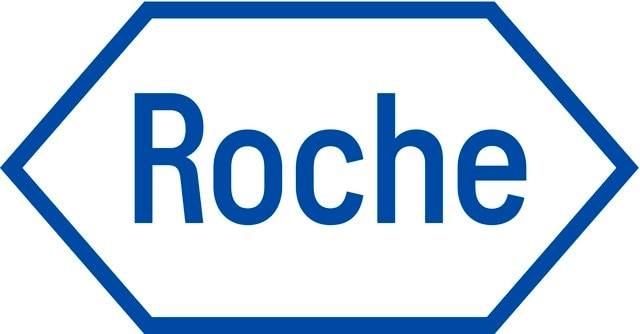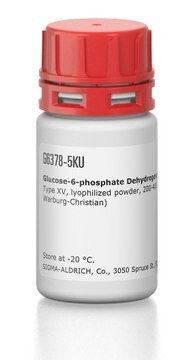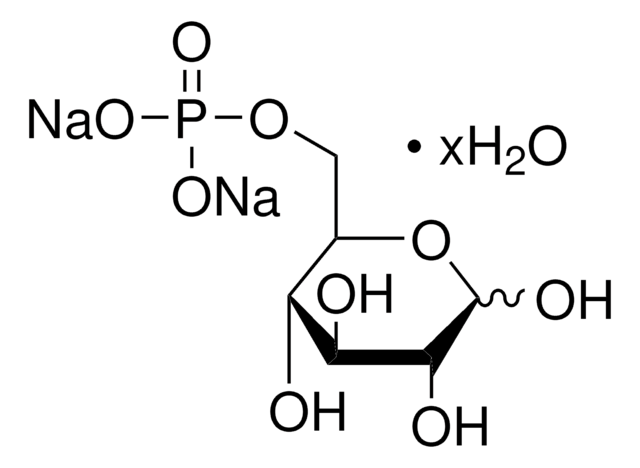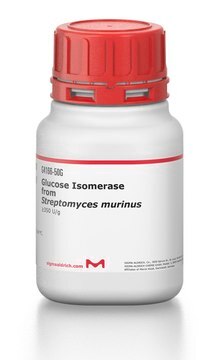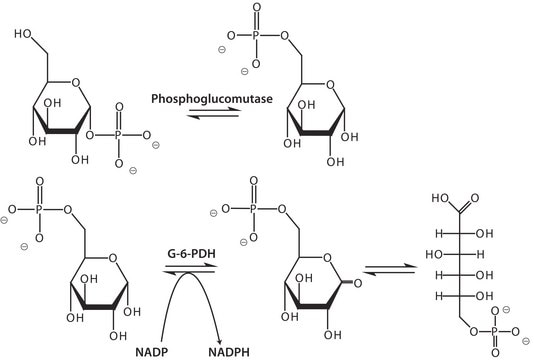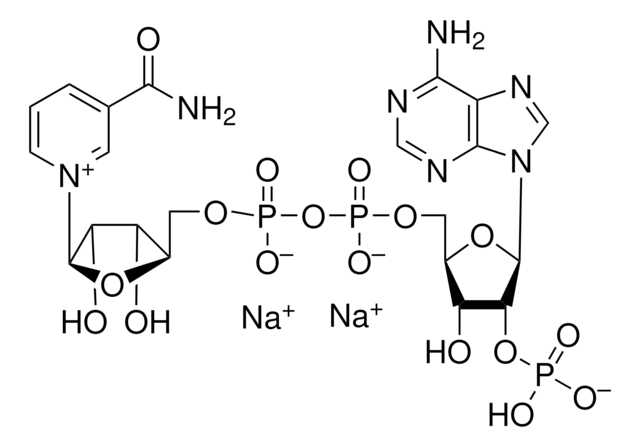PGI-RO
Roche
Phosphoglucose Isomerase (PGI)
from yeast
Synonym(s):
glucose-6-phosphate isomerase
Sign Into View Organizational & Contract Pricing
All Photos(1)
About This Item
Recommended Products
biological source
yeast
Quality Level
form
suspension
specific activity
~350 units/mg protein (at 25 °C with fructose-6-P as the substrate.)
packaging
pkg of 1 mL (10127396001 [2 mg])
pkg of 1 mL (10128139001 [10 mg])
manufacturer/tradename
Roche
optimum pH
7.0-7.6
storage temp.
2-8°C
Related Categories
General description
Phosphoglucose Isomerase is an enzyme which possesses diagnostic potential when fractionated by cellulose acetate electrophoresis. This cytosolic enzyme plays an important role during glycolysis and glucogenesis. It acts as an tumor-secreted cytokine and autocrine motility factor. It is used as neurotrophic factor, maturation factor and as serine proteinase inhibitor.
Specificity
Phosphoglucose isomerase (PGI) is specific for G6P (Km = 0.7 mM) and fructose-6-phosphate (F6P).
Application
Isomerization of ketoses to aldoses.
Quality
Contaminants: <0.01% F6P-K, GR, 6-PGDH and PGluM, each, <0.2% β-fructosidase
Physical form
Suspension in 3.2 M ammonium sulfate solution, pH approximately 6
Preparation Note
Storage conditions (working solution): A solution of PGI in 20 mM Tris, pH 8.1, containing 0.2 mg BSA/ml, is stable approx. 1 week at 2 to 8 °C.
Other Notes
For life science research only. Not for use in diagnostic procedures.
Storage Class Code
12 - Non Combustible Liquids
WGK
WGK 1
Flash Point(F)
No data available
Flash Point(C)
No data available
Certificates of Analysis (COA)
Search for Certificates of Analysis (COA) by entering the products Lot/Batch Number. Lot and Batch Numbers can be found on a product’s label following the words ‘Lot’ or ‘Batch’.
Already Own This Product?
Find documentation for the products that you have recently purchased in the Document Library.
Customers Also Viewed
Aamir Ahmad et al.
Cancer research, 71(9), 3400-3409 (2011-03-11)
Phosphoglucose isomerase/autocrine motility factor (PGI/AMF) plays an important role in glycolysis and gluconeogenesis and is associated with invasion and metastasis of cancer cells. We have previously shown its role in the induction of epithelial-mesenchymal transition (EMT) in breast cancer cells
Our team of scientists has experience in all areas of research including Life Science, Material Science, Chemical Synthesis, Chromatography, Analytical and many others.
Contact Technical Service